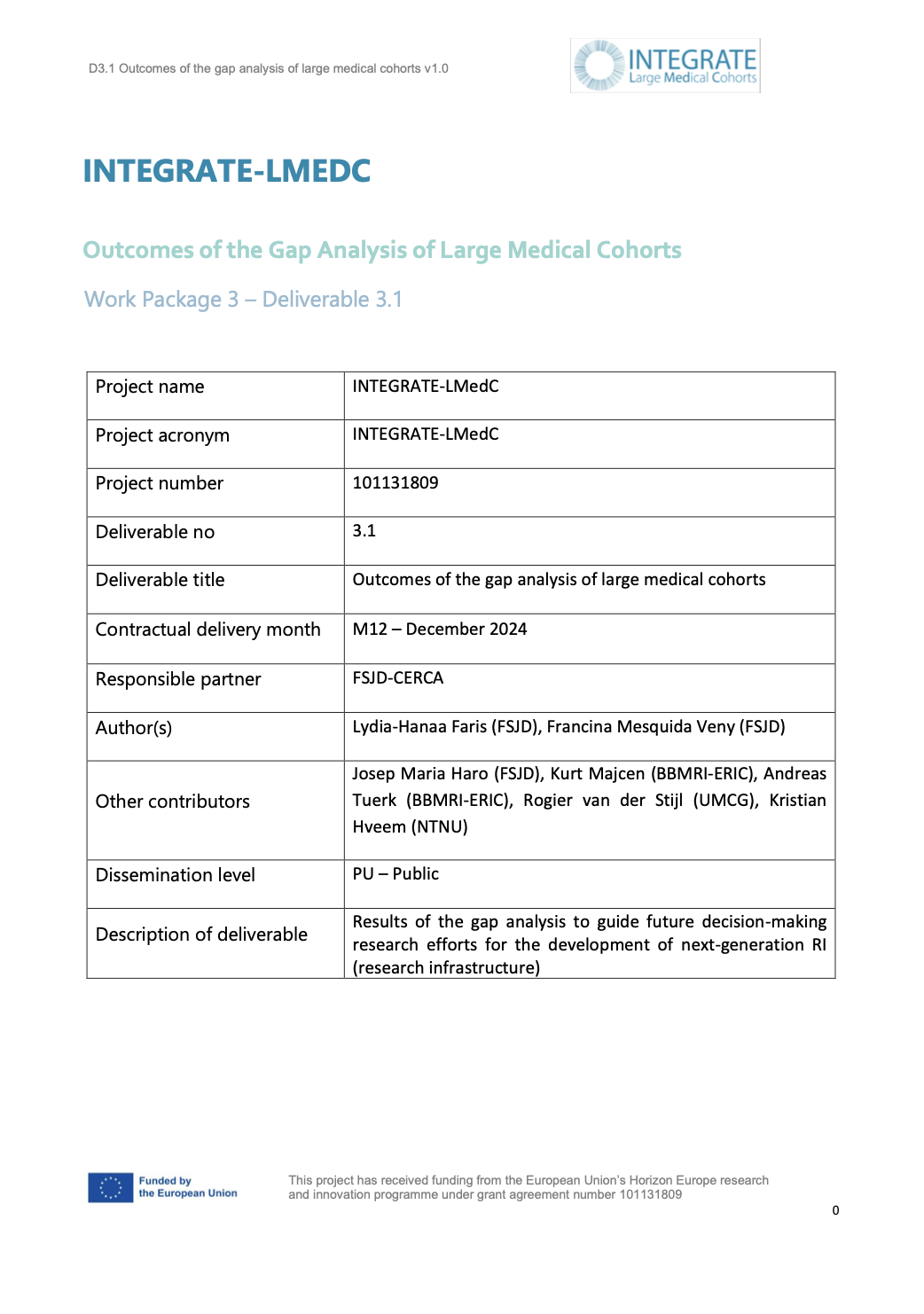WP3 – Large Medical Cohorts has successfully concluded and this article summarises the team’s accomplishments. The team comprised leadership by FSJD-CERCA with contributions from BBMRI-ERIC, NTNU, UMCG, ECRIN, MU, QI.LAB.Med.
The objective of WP3 was to enhance the understanding and use of large medical cohort data across Europe. Over its 12-month duration, it focused on conducting a comprehensive gap analysis to map the current landscape of large medical cohorts and identify areas of unmet medical need.
This analysis provided valuable insights into opportunities for improving medical care and optimising research efforts. Additionally, WP3 contributed to guidance of the development of a new infrastructural concept designed to streamline the use of cohort data and biological samples, ensuring better utilisation both now and in the future.
The key deliverable of WP3 is a detailed report outlining the outcomes of the gap analysis (D3.1 – Outcomes of the Gap Analysis of Large Medical Cohorts). It provides a foundation for future advancements in medical research and healthcare.
Key findings and outcomes
The initial phase of WP3 focused on defining the scope and criteria for large medical cohorts, as previously outlined. This was followed by a two-round Delphi study to identify unmet medical needs and opportunities for improving care.
A total of 73 experts participated in this study; 44 in the first round and 68 in the second round. Based on these results, nominal interviews were conducted with 20 experts from across Europe, highlighting depression, Alzheimer’s disease (AD) and endometriosisas priority areas with unmet medical needs that could benefit from large medical cohort data.
A Scoping Review, covering records published between 2019 and 2024, is now been completed. It maps existing large medical cohorts, as defined at the start of WP3, focusing on the final diseases identified in the previous stages. The review identified 48 cohorts for depression, 16 cohorts for Alzheimer’s disease, and 1 cohort for endometriosis.
All the work carried out contributed to the development of Deliverable D3.1 – Outcomes of the Gap Analysis of Large Medical Cohorts, which presents a comprehensive mapping of the European large medical cohort landscape. This deliverable aims to guide decision making, improve research efforts and support the establishment of a next generation research infrastructure taking into account current challenges and limitations in cohort data access and utilisation.
Explore INTEGRATE-LMedC – D3.1 Outcomes of the Gap Analysis of Large Medical Cohorts – Faris, L. H., Mesquida-Veny, F., & Haro, J. M. (2025) – on Zenodo.
Stay connected and keep up with all the latest project updates by following us on our social media channels (Bluesky, Twitter/X, LinkedIn).


Leave a Reply